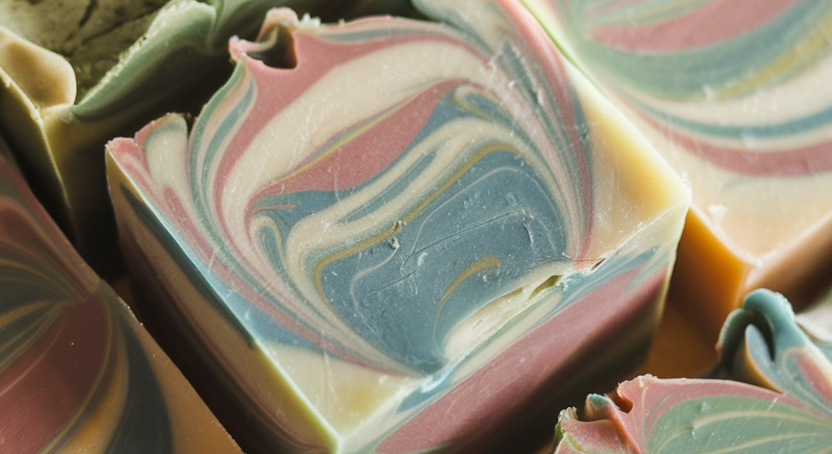Is Natural Handmade Soap Safe for Sensitive Skin? Understanding the Risks of High pH and Incomplete Saponification
By:
Kevin Chong
On
31/10/2024Reading time:
5 min
Summary:
Natural handmade soap is often marketed as a gentle, eco-friendly alternative to commercial soaps. However, while it may be free from synthetic chemicals and artificial fragrances, handmade soap can come with certain risks—especially for those with sensitive or eczema-prone skin. Without the same level of quality control as mass-produced soaps, handmade soap can vary widely in pH, saponification, and ingredient balance, which can impact skin health.
In this post, we’ll explore why handmade soap might not always be the best option for sensitive skin, the risks of high pH levels and incomplete saponification, and what these issues mean for skin health.

What Is Natural Handmade Soap?
Natural handmade soap is typically crafted using traditional methods, combining oils (like olive oil, coconut oil, or palm oil) with lye (sodium hydroxide) in a process called saponification. During saponification, the lye interacts with the oils, turning them into soap. Once fully saponified, there should be no lye left in the final product, resulting in a gentle and effective cleanser.
However, variations in formulation and lack of quality control can sometimes lead to issues like high pH levels or incomplete saponification, which may cause skin irritation, particularly for sensitive skin or conditions like eczema.
Potential Risks of Handmade Soap for Sensitive and Eczema-Prone Skin
1. High pH Levels
One of the primary concerns with handmade soap is its pH level. Soap naturally has a higher pH than the skin, which typically has a pH around 4.5 to 5.5. In contrast, soap has a pH ranging from 9 to 10. When the pH of handmade soap isn’t carefully controlled, it can be even higher than this, potentially irritating the skin.
Why High pH Matters:
Disrupts Skin Barrier: High pH soaps can disrupt the skin’s natural acidic barrier, leading to dryness, flakiness, and sensitivity.
Increased Irritation for Sensitive Skin: For those with sensitive or eczema-prone skin, a high pH soap can worsen symptoms, making skin feel tight, itchy, and irritated.
Risk of Flare-Ups: In individuals with eczema, the skin barrier is already compromised. Using high pH soap can increase the risk of flare-ups by stripping moisture and weakening the skin’s natural defenses.
2. Incomplete Saponification
Handmade soap requires precise measurements and timing to ensure complete saponification. When saponification is incomplete, traces of lye can remain in the soap, which can lead to skin irritation and burning sensations.
Why Incomplete Saponification Is a Problem:
Residual Lye Can Be Irritating: If the soap contains unreacted lye, it can be highly alkaline and harsh on the skin, especially for individuals with sensitive skin conditions.
Inconsistent Quality: Handmade soap is often made in small batches, which can lead to variations in formulation, meaning some batches might not fully saponify. This lack of consistency can make it difficult to ensure the soap is safe for all skin types.
3. Lack of Preservatives and Quality Control
While being free from synthetic preservatives is often seen as a benefit, it can also lead to quality control issues in natural handmade soaps:
Contamination Risks: Handmade soaps can be more prone to microbial contamination if not made or stored correctly. Without preservatives, these soaps may develop mold or bacterial growth, which is unsafe for the skin.
Ingredient Variation: Handmade soaps may also contain essential oils or plant extracts that vary from batch to batch, leading to potential irritants or allergens, particularly for sensitive skin types.
The Impact of Handmade Soap on Sensitive and Eczema-Prone Skin
For individuals with sensitive skin or eczema, the potential risks associated with natural handmade soap can outweigh its benefits. Here’s how handmade soap can negatively impact such skin types:
Disrupted Skin Barrier: Sensitive skin requires a balanced, low-pH cleanser to avoid irritation. High pH handmade soaps can strip away natural oils, weakening the skin barrier and making it more prone to dryness and inflammation.
Increased Risk of Irritation and Allergies: Essential oils, herbal additives, and plant extracts are common in handmade soaps. While natural, these ingredients can still trigger allergies or cause sensitivity in reactive skin.
Exacerbation of Eczema Symptoms: For eczema-prone skin, maintaining moisture and protecting the skin barrier are crucial. High pH soap can dry out the skin, worsening eczema symptoms and making flare-ups more likely.
Safer Alternatives to Natural Handmade Soap
For those with sensitive or eczema-prone skin, choosing a gentle, low-pH cleanser is often a better option than handmade soap. Here are some alternatives that may offer better protection and hydration:
Syndet Bars: Short for “synthetic detergent,” syndet bars are soap-free cleansers with a lower pH, often between 5 and 6, making them gentler on the skin barrier.
Liquid Cleansers: Mild liquid cleansers formulated for sensitive skin are designed to maintain the skin’s natural pH and avoid disrupting the barrier.
Fragrance-Free and Hypoallergenic Options: Look for cleansers that are labeled fragrance-free and hypoallergenic, as these are less likely to contain ingredients that trigger sensitivity or allergies.
While natural handmade soap can be an appealing choice, it may not be the best option for those with sensitive or eczema-prone skin. High pH levels, incomplete saponification, and inconsistent quality control can all contribute to skin irritation and discomfort. For individuals who prioritize skin health and comfort, choosing a low-pH, dermatologist-tested cleanser can provide a gentler and safer way to cleanse.
If you love handmade products but want to avoid potential skin issues, consider speaking to the artisan about their processes, ingredients, and pH testing. Ultimately, informed choices can help you find products that balance natural ingredients with skin compatibility.
